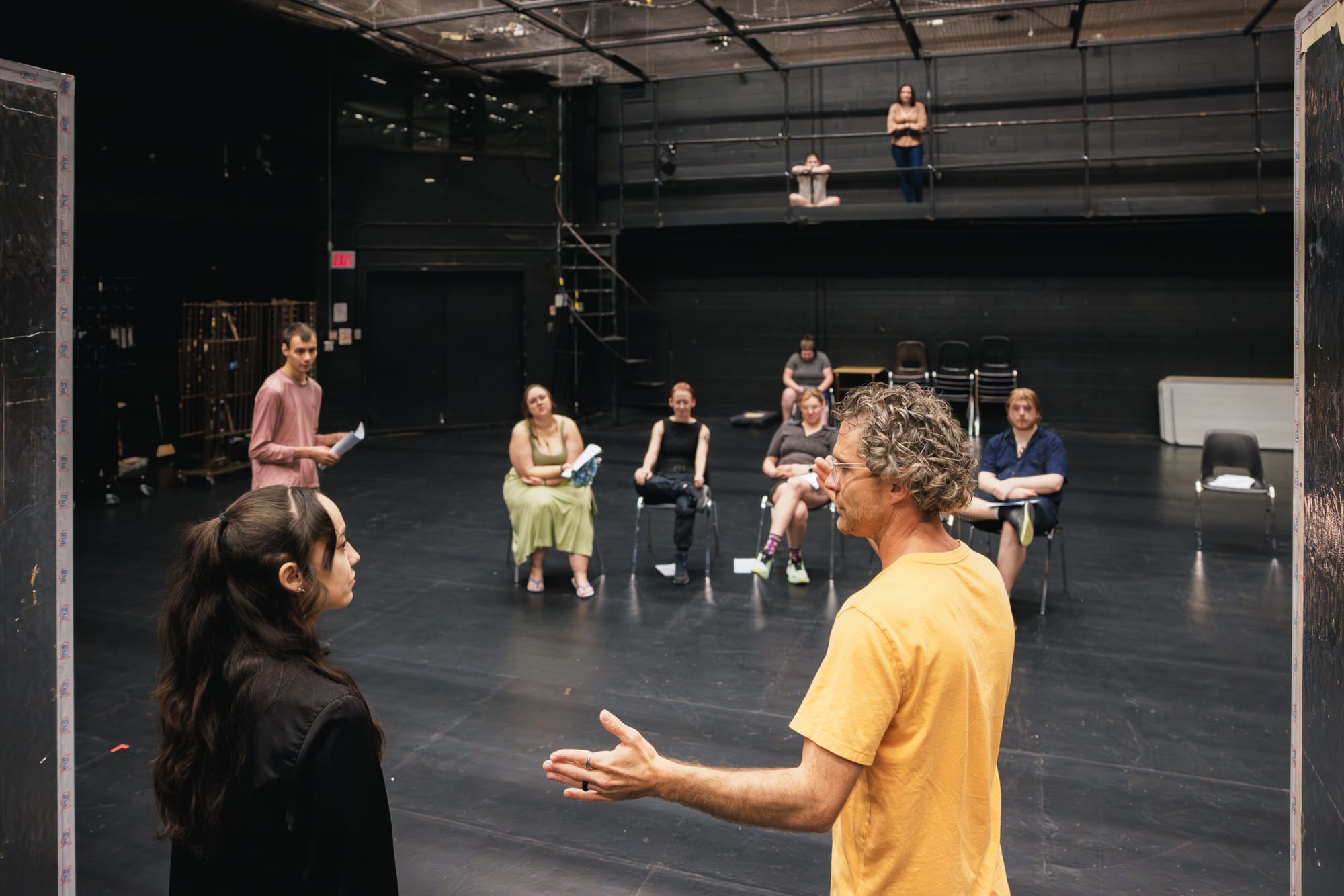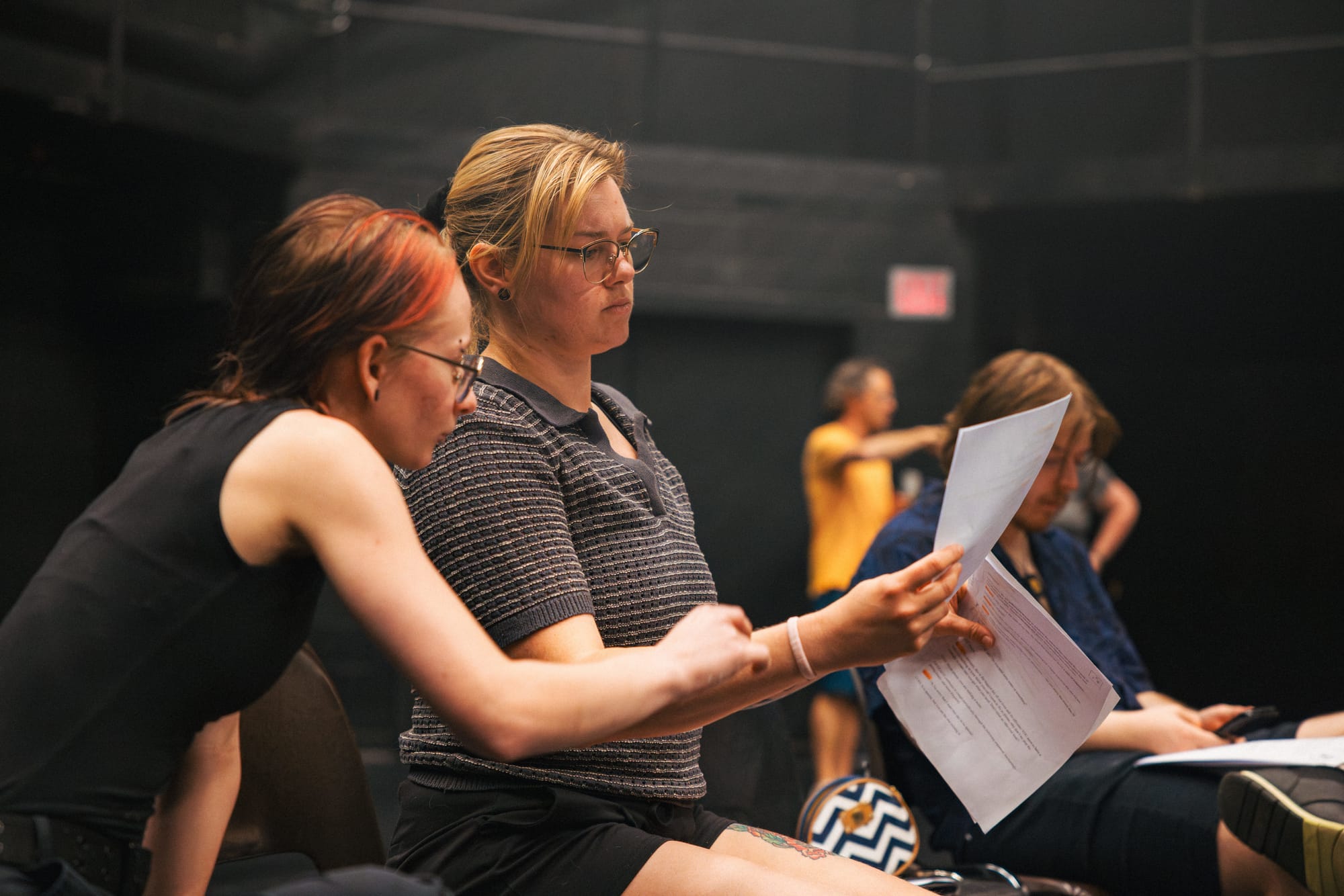At the University of Lethbridge, learning doesn’t stay in the classroom. In a unique summer course called Theatre for Scientific Purposes, fine arts and science students and professors work side by side on real-world brain research.
Instead of performing for an audience, drama students create and act out scenes for a neuroscience study exploring how we form and recall memories. These performances are recorded and used in fMRI brain scans to help researchers understand memory in everyday life.

"This course has put me in a unique professional context that is both challenging and rewarding," says multidisciplinary student Danica Sommer. "Working as a team, being flexible and delivering results under a time crunch are experiences both theatre professionals and scientific researchers are familiar with."
For neuroscience and drama student Zeth Stewart, the collaboration showed how science and the arts can fuel each other — and it become their favourite course they've taken at ULethbridge.
"We can’t forget that the arts are a fundamental part of life. This course brought those personal, lived experiences into the conversation in a meaningful way, while still grounding the discussion in the scientific method," says Zeth.
"As a student with a passion for both understanding human behaviour and theatrically expressing it, this class was a wonderful blend of empirical analysis and the subjective experience," he adds.

This kind of cross-disciplinary learning is part of ULethbridge’s commitment to liberal education — helping students think in new ways, build unexpected skills and prepare for a future full of possibilities.